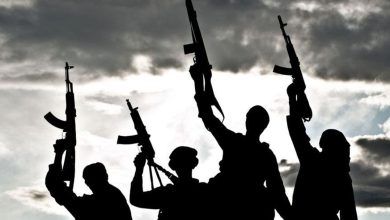Direct Peace Talks Set to Begin Between DR Congo and M23 Rebels in Angola

In a significant diplomatic move, the government of the Democratic Republic of the Congo (DRC) and the Rwanda-backed M23 rebels are set to hold direct peace negotiations next week, Angola’s presidency confirmed on Wednesday.
These talks, scheduled to begin on March 18 in the Angolan capital, Luanda, represent a pivotal moment in the ongoing conflict that has devastated eastern DRC.
Angola, which has previously facilitated peace efforts in the region, will once again act as a mediator between the two parties.
The DRC conflict, which escalated sharply in January when M23 seized control of the strategically vital city of Goma, has seen continued violence with the recent fall of Bukavu, DRC’s second-largest city.
M23’s territorial gains have raised alarm across the region, with the UN and humanitarian organizations warning of worsening conditions.
Rwanda has consistently denied backing the M23, despite widespread allegations of support. The origins of the conflict, which can be traced back to the aftermath of Rwanda’s 1994 genocide and a battle for control over eastern Congo’s rich mineral resources, have created deep geopolitical tensions, involving neighboring countries and armed groups vying for dominance.
DRC President Felix Tshisekedi traveled to Angola earlier this week to explore the possibility of engaging in talks, with the government subsequently receiving an invitation from Luanda.
However, Tina Salama, a spokesperson for President Tshisekedi, did not immediately confirm whether the government would attend the upcoming talks.
M23 leader Bertrand Bisimwa, in a statement on X, framed the negotiations as a necessary step to resolve a crisis that has plagued the region for decades. “We have forced Tshisekedi to the table,” Bisimwa declared, emphasizing that dialogue was the “only civilized solution” to a conflict that has resulted in significant loss of life and displacement.
Since the violence reignited in January, more than 7,000 people have lost their lives, with the UN Refugee Agency reporting that nearly 80,000 people have fled the conflict. Of these, 61,000 have sought refuge in neighboring Burundi alone.
The scale of the displacement underscores the broader humanitarian crisis and the urgent need for a durable peace agreement.
The M23, one of numerous armed factions competing for control of the mineral-rich region, has exacerbated the instability.
Eastern DRC is home to vast reserves of strategic minerals, including cobalt, coltan, copper, and lithium—resources that fuel the conflict and attract a host of regional and international actors.
With neighboring countries such as South Africa, Burundi, and Uganda deploying troops in the region, there are growing concerns that the conflict could spiral into a broader regional war, reminiscent of the devastating Congo wars of the 1990s and early 2000s.
Those wars resulted in the loss of millions of lives, and the current tensions suggest the region could be on the brink of another catastrophic escalation.
As the peace talks approach, the international community will be watching closely, hoping that the dialogue in Luanda can break the deadlock and pave the way for lasting peace in a region long plagued by violence and instability.





